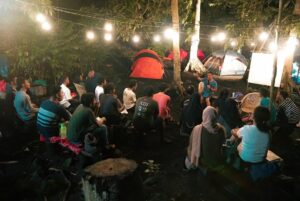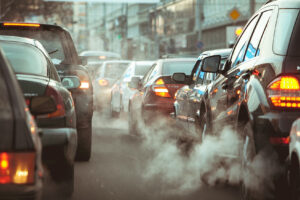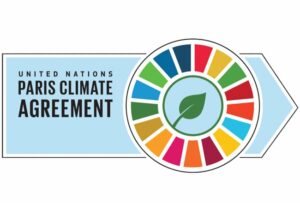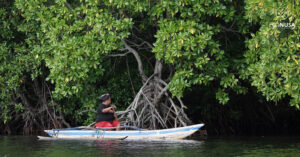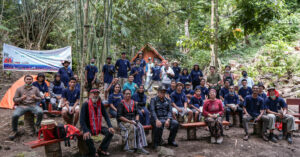Have you heard of Kaimana before? This maritime area’s name may not be as well-known as Raja Ampat, Wakatobi, or Bunaken. However, it turns out that the waters of Kaimana, in West Papua, are truly amazing! According to the exploration conducted by Conservation International Indonesia, the waters of Kaimana are home to 937 species of fish and 492 varieties of coral, making it known as the “fish kingdom.” Other than that, Kaimana is also surrounded by thousands of hectares of mangrove forests.
With its remarkable natural resources, it obviously requires a great amount of effort from various parties to ensure its long-term sustainability, ranging from the local community, government, and visitors. Interestingly, the local people of Kaimana have a unique local practice, known as Sasi Nggama, to protect their maritime resources. This tradition is believed to has been practiced since ancient times and is still practiced now. Would you like to learn more about Sasi Nggama? Let’s keep reading until the end!
Sasi Nggama: Utilizing Marine Resources with Discipline
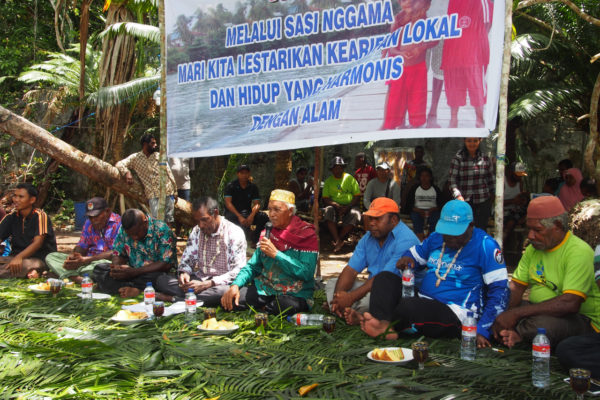
With the existence of Sasi Nggama tradition, people are encouraged to be more disciplined in their use of existing marine resources. This tradition establishes an “open-close” system for when individuals are permitted to take marine resources and when they are not. Depending on the rules of each village, the restriction period for taking marine resources can vary. It can be enforced for 11 months, two years, or even four years in some cases. A fine will be imposed on anyone who breaks the restrictions during the prohibition period.
A traditional ceremony is usually held as a sign of the reopening of the sea for the community to enjoy the resources. On Nawarum Island, for example, the people will remove coconut leaves that serve as a reminder that the restriction period is still in effect. The leaves will then be dipped three times in the sea. Aside from that, some villages also hold ceremonies and make offerings as a symbol of appreciation for nature.
Following the lifting of the prohibition, the community will be able to take use of the marine commodities that have been preserved thus far. Even so, they are advised to take it wisely, as well as to avoid taking rare marine resources.
3 Zones in Kaimana Seas
The territorial seas of Kaimana are separated into three zones: a 97,293-hectare sustainable fisheries zone, an 11,184-hectare tourism zone, and a 14,109-hectare core zone. As a result, when obtaining marine resources, people are not allowed to take them from anywhere other than the agreed-upon zone.
The sustainable fisheries zone is designed to be a place where marine resources can be used in a responsible manner. Then, the marine area that is included in the tourism zone means that its function will be maintained for activities such as snorkeling and diving. Meanwhile, the core zone is a highly well-guarded area due to its great potential. An example is the 8,000 hectares of mangrove forest near Lakahia Island, Kaimana which has great potential as blue carbon.
If the community continues to maintain the Sasi Nggama tradition and follows the regulations for using marine resources according to the zone, Kaimana’s marine richness will be preserved. Furthermore, this tradition can undoubtedly serve as an inspiration for people in other locations to be more disciplined in their use of marine resources.
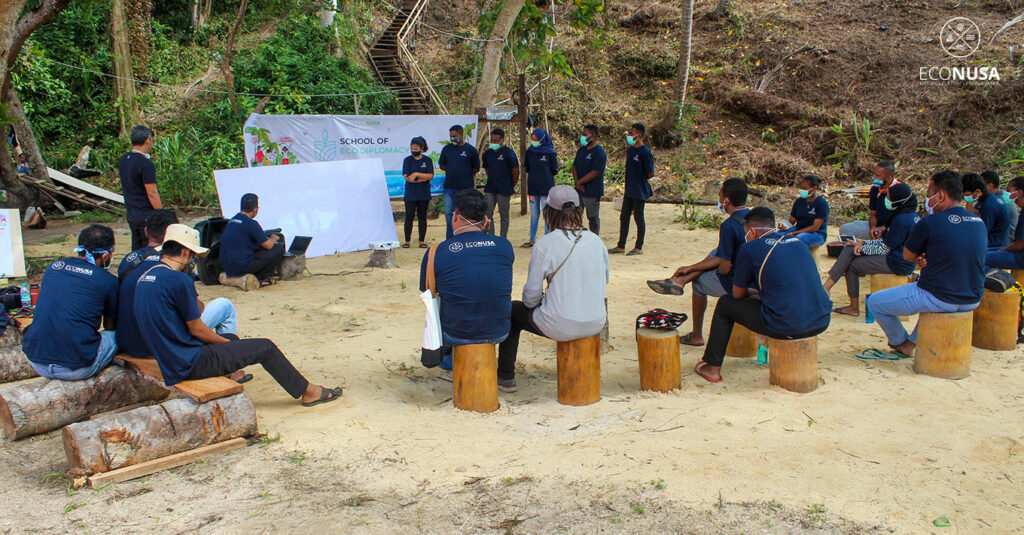
Inspired by Sasi Nggama’s spirit of preserving the sea, in 2021 the EcoNusa Foundation conducted a School of Eco Diplomacy in Kaimana. This program was attended by 18 young people aged 16-25 years from 3 regions in West Papua. For 4 days, they were invited to discuss and were given a series of training on being good environmental diplomats. The goal is for the participants to become environmental diplomats who actively encourage the community and stakeholders to pay more attention on environmental sustainability.



